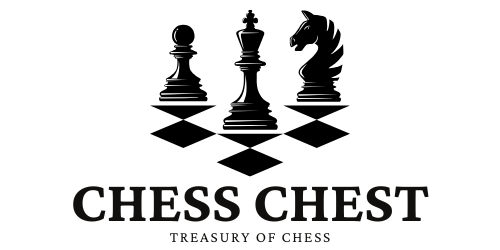Chess coaching groups offer players an effective way to improve their skills, learn new strategies, and enjoy the game with like-minded peers. Finding the right group can be transformative, providing structured learning, regular practice, and supportive guidance. However, with so many options available, it’s essential to choose a group that aligns with your goals, skill level, and preferred learning style. Here’s a guide to help you find the ideal chess coaching group for your needs.
1. Determine Your Skill Level and Goals
Understanding your current skill level and goals will help narrow down the types of groups that will benefit you most. Whether you’re a beginner wanting to learn the basics or an advanced player aiming to refine your strategies, there are coaching groups tailored to every level.
- Beginner: Look for groups that focus on fundamentals, such as understanding piece movement, basic tactics, and simple openings.
- Intermediate: Seek groups that offer more in-depth tactical training, opening theory, and endgame principles.
- Advanced: Advanced players benefit from groups with high-level analysis, complex strategies, and tournament preparation.
- Benefits: Knowing your level and goals ensures that you find a group where you can keep up with lessons, feel challenged, and track your improvement effectively.
2. Decide on Group Size and Interaction Style
Group coaching settings vary in size, from small, intimate groups to large communities. Smaller groups offer personalized attention, while larger groups provide diverse perspectives and a more social experience. Think about what interaction style suits you best.
- Small Groups (5-10 members): These groups provide a more personalized experience, with direct feedback from the coach and individual focus on each member’s improvement areas.
- Medium Groups (10-20 members): Medium-sized groups strike a balance, allowing members to engage with different playing styles while still receiving some personal feedback.
- Large Groups (20+ members): Large groups are ideal for players who enjoy socializing, engaging in discussions, and benefiting from a wide range of perspectives. However, feedback may be less individualized.
- Benefits: Choosing a group size that matches your learning preferences helps you stay engaged and allows for the right balance between individualized feedback and peer interaction.
3. Evaluate the Coaching Structure and Curriculum
Different coaching groups offer unique structures and curriculums. Some groups follow a structured program with set lessons, while others may have a more flexible approach. Reviewing the group’s curriculum can help you assess whether it meets your learning needs.
- Structured Curriculum: Groups with structured programs offer a step-by-step approach, covering key topics such as tactics, openings, and endgames in a logical progression. This approach is ideal for players looking for a consistent, guided learning experience.
- Flexible Curriculum: Some groups operate with open sessions, where players bring games or specific topics for review. This format works well for players who want personalized guidance on specific challenges.
- Hybrid Approach: Many groups combine structured lessons with flexible Q&A sessions or game analysis, providing a balanced approach that adapts to members’ needs.
- Benefits: Choosing a coaching structure that aligns with your learning style keeps you motivated, ensuring you cover important topics while also addressing personal challenges.
4. Look for Groups with Experienced, Engaging Coaches
The coach’s experience and teaching style play a critical role in the effectiveness of a coaching group. Look for a coach who is knowledgeable, communicative, and able to engage players at your level.
- Qualifications and Background: Check the coach’s qualifications, such as FIDE rating, tournament experience, or coaching credentials. A skilled coach with a background in teaching can make complex concepts easier to understand.
- Teaching Style: Different coaches have different teaching styles—some may be very structured and analytical, while others may focus on fostering creativity and open discussion. Choose a coach whose style resonates with your learning preferences.
- Engagement: A good coach actively engages with students, providing constructive feedback, answering questions, and encouraging participation.
- Benefits: Finding a coach who matches your learning style and keeps sessions engaging will make lessons more enjoyable and effective, helping you improve faster.
5. Consider the Community and Group Dynamics
Joining a coaching group also means becoming part of a community. Positive group dynamics, where members support and motivate each other, can significantly enhance your experience and progress.
- Welcoming Atmosphere: Look for groups with a friendly, supportive atmosphere. A positive community encourages open sharing of ideas, questions, and constructive feedback.
- Player Interactions: Groups where members actively participate, analyze games, and share resources can be highly beneficial. Engaging with peers enhances your learning and helps you feel part of a team.
- Encouragement and Accountability: A group that encourages goal-setting and accountability can keep you motivated and focused on improvement.
- Benefits: Being part of a supportive and engaged community adds an extra layer of motivation, as members learn together and celebrate each other’s progress.
Summary
Finding the right chess coaching group is key to improving your skills in an enjoyable and supportive environment. By considering your skill level, preferred group size, coaching structure, coach qualifications, and group dynamics, you can find a group that aligns with your goals and learning style. The right coaching group will provide the guidance, feedback, and camaraderie you need to reach new heights in your chess journey. Whether you’re aiming for casual improvement or competitive play, joining a well-matched coaching group will make the path to progress both rewarding and fun.




